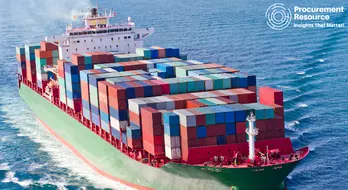Disparity in the Diesel Supply in Germany Gives Rise to Price Differences

Germany is currently facing significant price fluctuations on the back of a disorganized and staggered diesel supply.
The upswinging prices of cargo imports into Hamburg have been jacking up the diesel costs in the northern regions of Germany. On the other hand, a surfeit of products is weighing on the prices, thrusting it down to 226,000 b/d PCK around the Schwedt refinery that is close to the Poland border. This movement can be primarily tied to the fact that the Polish buyers have palliated the imports from the plant.
Request Access To The Latest Price Trends of Diesel
In the lead-up to Poland's parliamentary elections in October, a notable decrease in wholesale prices has rendered imports from Germany economically unviable, causing at least one supplier from PCK Schwedt to reduce diesel prices to recapture Polish clientele.
The developing price disparity between northern and eastern Germany is projected to intensify as import costs into northern Germany are expected to persistently ascend. Factors such as dwindling exports from Russia, increasing diesel demand in northwest Europe, and a constrained domestic supply potentially jeopardize diesel availability. Amidst concerns of a potential supply shortfall, Germany’s ability to import sufficient winter diesel and the associated costs remain uncertain, prompting traders to anticipate price surges at import locations nationwide.
Concurrently, southwest Germany is experiencing a decline in prices attributed to high run rates at the Miro refinery in Karlsruhe, resulting in a surplus. Conversely, the Bayernoil refinery in southern Germany is grappling with production setbacks due to a leak and a failure at its Neustadt site, spurring a notable price surge since early September and likely extending the shortage through October.
Future fluctuations in product availability appear plausible and might even amplify. Elwis Information Service predicts a drop in Rhine water levels below 100cm at the Kaub bottleneck by 6 October, restricting barges to below 40% of their customary loading capacity. Consequently, the Miro refinery might encounter difficulties in transporting sufficient product via barge, potentially intensifying a local product surplus.
Read More About Diesel Production Cost Reports - Get Free Sample Copy in PDF
In an upcoming shift, Miro's consortium of operators anticipates a partial shutdown from mid-October to the end of November, presumably moderating supply and minimizing price disparities with adjacent regions in the latter half of the month. The intertwining scenarios across regions underscore a complex, multifaceted dynamic in the diesel market, linking geopolitical, environmental, and industrial factors in a delicate balance.
According to the article by Procurement Resource, Germany's diesel market is stuck in complex dynamics of regional disparities, geopolitical influences, and environmental factors, illustrating a delicate and dynamic economic interplay. The nation witnesses divergent diesel price trajectories, with rising costs in the north due to import inflations and contrasting fluctuations in the east and southwest amidst political and industrial activities. With prospective geopolitical uncertainties, environmental factors like predicted low Rhine water levels, and potential industrial challenges, the diesel market’s stability remains precarious, necessitating meticulous monitoring and strategic interventions to ensure economic and logistic stability across the regions.



